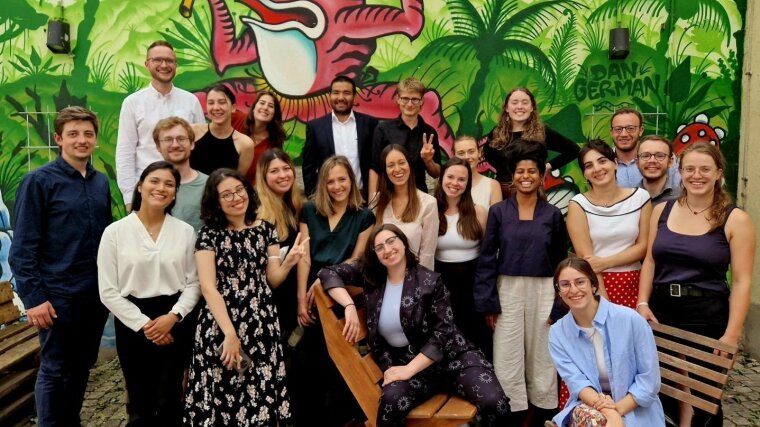
Published: | By: Christoph Stieglbauer
This year's IOCM Summer School, entitled "United Nations Peace Operations: Actors, Structures, and Challenges," took place in Jena from July 21 to 29. Under the guidance of Steve Biedermann, the 25 participants, which again included students from Otto von Guericke University of Magdeburg, explored various aspects of UN peace operations. These operations represent a central instrument for maintaining international peace and security and cover a broad spectrum of tasks, ranging from conflict prevention to post-conflict reconstruction in different kinds of conflicts.
For many years, UN peace operations have been critically discussed and subject to a constant reform process for different reasons. Despite numerous successes as well as conceptual and practical improvements, they face multiple challenges, including the increasing complexity of conflict settings, limited political will among UN member states, and misconduct by UN personnel. Against this background, the summer school aimed to take stock of UN peace operations.
The participants examined the politics of the UN Security Council, the history and evolution of UN peace operations, as well as their purposes, principles, functioning, evaluation, and limitations (e.g., use of force, protection of civilians, and gender equality). In addition, they prepared for a two-day UN Security Council simulation at the end of the summer school through background research, group presentations, and debating exercises. The program was rounded off by social activities such as a BBQ in Paradiespark.
Under the auspices of PlanpolitikExternal link, a Berlin-based provider of political education and simulation formats, the concluding Security Council simulation was conducted from July 28 to 29. The participants assumed the role of state representatives and negotiated the deployment of a UN peacekeeping operation to a fictional conflict. In doing so, they applied the previously acquired knowledge and experienced the difficulties of international negotiations driven by state interests.
After intense informal negotiations and emotional speeches during the formal council meetings, the delegates reached an agreement. They passed a resolution without immediately deploying a peace operation to support international peace and security.



